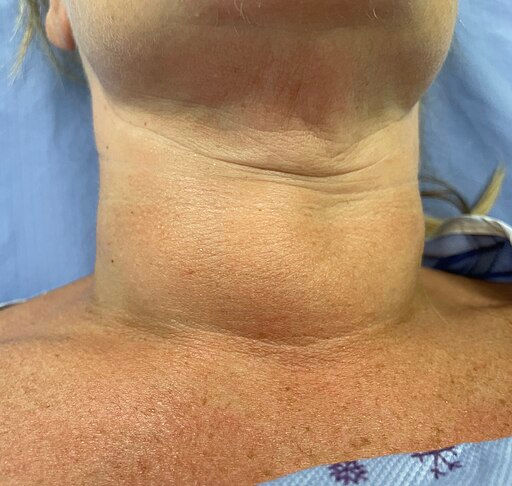Navigating Thyroid Health: Otolaryngologist vs. Endocrinologist
- a7894728
- Dec 18, 2024
- 3 min read
Thyroid | Otolaryngologist vs. Endocrinologist | When to see Endocrinologist | When to see Otolaryngologist | Which Doctor to Consult | Seek Help
The thyroid, a small butterfly-shaped gland at the base of your neck, plays a big role in your health. It regulates metabolism, energy, and more, so when something goes wrong, it can significantly impact your well-being. But navigating thyroid concerns can feel overwhelming, especially when deciding whether to consult an otolaryngologist (ENT specialist) or an endocrinologist.

This guide will help you understand the difference between these specialists and when each one can best address your thyroid-related concerns.
The Role of the Thyroid
Your thyroid gland produces hormones that influence virtually every cell in your body. Problems arise when the gland becomes overactive (hyperthyroidism) or underactive (hypothyroidism), or when physical changes, like lumps or swelling, occur.
Endocrinologist vs. Otolaryngologist
To better understand thyroid care, it's important to know the difference between endocrinologists and otolaryngologists.
An otolaryngologist or ENT specialist focuses on diseases and disorders of the ear, nose, throat, and related structures of the head and neck, including the thyroid gland from a structural or surgical perspective.
An endocrinologist specializes in the body’s hormonal system and manages disorders affecting glands, including the thyroid, from a functional perspective.
Both play critical roles in thyroid care but address different aspects of thyroid problems.
When to See an Endocrinologist
You should consider seeing an endocrinologist if your thyroid concern primarily involves hormone levels or general symptoms caused by hormonal imbalances, such as:
Chronic Thyroid Disorders
Conditions like hypothyroidism (underactive thyroid) or hyperthyroidism (overactive thyroid) are managed with medications that balance thyroid hormone levels.
Autoimmune Thyroid Diseases
Disorders like Hashimoto’s thyroiditis or Graves’ disease require monitoring and treatment for their impact on hormone production.
Unexplained Symptoms
If you’re experiencing persistent fatigue, weight changes, hair loss, or sensitivity to temperature, an endocrinologist can evaluate if your thyroid hormones are the root cause.
Hormonal Interactions with Other Conditions
Thyroid problems often intersect with other hormonal issues, like adrenal or pituitary disorders, requiring an endocrinologist’s expertise.
When to See an Otolaryngologist (ENT Specialist)
An ENT is your go-to specialist if your thyroid concern involves the physical or structural aspects of the thyroid or surrounding area, such as:

Doc James, CC BY-SA 4.0, via Wikimedia Commons
Neck Lumps, Goiters, or Swelling
A visible lump, goiter (enlarged thyroid), or persistent swelling in the neck requires imaging or a biopsy, which an ENT can perform.
Thyroid Nodules
Nodules may need evaluation for cancer or other complications. ENTs often handle biopsies and may recommend surgery if needed.
Voice Changes or Difficulty Swallowing
Symptoms like hoarseness, changes in your voice, or trouble swallowing might indicate a thyroid problem affecting your vocal cords or esophagus, requiring ENT expertise.
Surgical Intervention
If you’ve been diagnosed with a thyroid condition that requires surgery, such as removing cancerous nodules or a goiter, an ENT specializes in these procedures with precision to preserve vital structures.
Unsure Which Doctor to Consult?
Navigating health concerns can be stressful. In such cases, your primary care physician (PCP) is a trusted advisor. They can assess your symptoms or concerns and direct you to an appropriate specialist for treatment and diagnosis. As a general rule of thumb, consider:
If your symptoms are related to hormone levels (e.g., fatigue, weight changes, anxiety), start with an endocrinologist.
If your concerns involve lumps, swelling, or physical symptoms in the neck area (e.g., voice changes, visible enlargement), consult an ENT specialist.
Find ENT Care You Need in Hollywood, FL
If you are experiencing symptoms that are causing concern, don’t wait to seek professional help. At ENT Family, our compassionate and experienced team is fully equipped to address your concerns, provide personalized care, and help put your mind at ease.
Address: 3911 Hollywood Blvd#201, Hollywood, FL 33021, United States
Phone: 754-888-1368
Email: info@entfamily.com
REFERENCES



.png)
Comentarios